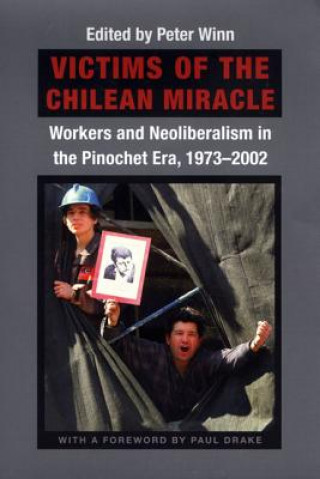
Kód: 04937972
Victims of the Chilean Miracle
Chile was the first major Latin American nation to carry out a complete neo-liberal transformation. Its policies--encouraging foreign investment, privatizing public sector companies and services, lowering trade barriers, reducing ... celý popis
- Jazyk:
 Angličtina
Angličtina - Vazba: Brožovaná
- Počet stran: 448
Nakladatelství: Duke University Press, 2004
- Více informací o knize

910 Kč

Skladem u dodavatele v malém množství
Odesíláme za 14-18 dnů
Potřebujete více kusů?Máte-li zájem o více kusů, prověřte, prosím, nejprve dostupnost titulu na naši zákaznické podpoře.
Přidat mezi přání
Mohlo by se vám také líbit
-

Visual Mba
487 Kč -

Recent Advances in Abrasives Research
5947 Kč -

Final Fantasy XV Official Works
838 Kč -

Choice Theory
343 Kč -

What's the Point of Maths?
410 Kč -

C++ All-in-One For Dummies, 4th Edition
847 Kč -

Vice Versa Tarot Deck
717 Kč -

Evangelion Illustrations 2007-2017
670 Kč -

Kissinger the Negotiator: Lessons from Dealmaking at the Highest Level
409 Kč -

Konosuba: God's Blessing on This Wonderful World!, Vol. 7 (light novel)
290 Kč -
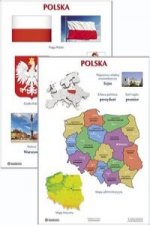
Plansza Polska
225 Kč -

Genesis 1967 to 1975
838 Kč -

Hoshin Engi, Vol. 3
210 Kč -

Japanese Wood Blocks (ukiyo-e): 100 Postcards
404 Kč -

Mr. Man
567 Kč -

Fugitive Emissions & Seals
1624 Kč -

Letters and Papers, Foreign and Domestic, of the Reign of Henry VIII: Volume 3, Part 2.1
2339 Kč -

Epidemiological and Statistical Aspects of the AIDS Epidemic
1846 Kč -

Tax-Deductible Wedding
424 Kč -

Reflective Planning Journal for School Leaders
2063 Kč -

Winsford
210 Kč -

SolarWinds Orion Network Performance Monitor
1869 Kč -

Bescherelle Le coffret de la langue française
950 Kč -

The Quintessential Quintuplets 07
171 Kč -

Amazon Echo Spot - Inoffizielles Handbuch: Das Ultimative Handbuch Zum Echo Spot Mit Alexa, Anleitungen, Erklärungen, Tipps & Tricks, Zubehör + Ifttt
833 Kč -

Apartament w Paryżu
242 Kč -

KuschelRock Christmas
766 Kč -

Ghostbusters/Teenage Mutant Ninja Turtles
412 Kč
Darujte tuto knihu ještě dnes
- Objednejte knihu a zvolte Zaslat jako dárek.
- Obratem obdržíte darovací poukaz na knihu, který můžete ihned předat obdarovanému.
- Knihu zašleme na adresu obdarovaného, o nic se nestaráte.
Více informací o knize Victims of the Chilean Miracle
Nákupem získáte 91 bodů
 Anotace knihy
Anotace knihy
Chile was the first major Latin American nation to carry out a complete neo-liberal transformation. Its policies--encouraging foreign investment, privatizing public sector companies and services, lowering trade barriers, reducing the size of the state, and embracing the market as a regulator of both the economy and society--produced an economic boom that some have hailed as a "miracle" to be emulated by other Latin American countries. But how have Chile's millions of workers, whose hard labor and long hours have made the miracle possible, fared under this program? Through empirically grounded historical case studies, this volume examines the human underside of the Chilean economy over the past three decades, delineating the harsh inequities that persist in spite of growth, low inflation, and some decrease in poverty and unemployment. Implemented in the 1970s at the point of the bayonet and in the shadow of the torture chamber, the neoliberal policies of Augusto Pinochet's dictatorship reversed many of the gains in wages, benefits, and working conditions that Chile's workers had won during decades of struggle and triggered a severe economic crisis. Later refined and softened, Pinochet's neo-liberal model began, finally, to promote economic growth in the mid-1980s, and it was maintained by the center-left governments that followed the restoration of democracy in 1990. Yet, despite significant increases in worker productivity, real wages stagnated, the expected restoration of labor rights faltered, and gaps in income distribution continued to widen. To shed light on this history and these ongoing problems, the contributors look at industries long part of the Chilean economy--including textiles and copper--and industries that have expanded more recently--including fishing, forestry, and agriculture. They not only show how neoliberalism has affected Chile's labor force in general but also how it has damaged the environment and imposed special burdens on women. Painting a sobering picture of the two Chiles--one increasingly rich, the other still mired in poverty--these essays suggest that the Chilean miracle may not be as miraculous as it seems. Contributors: Paul Drake; Volker Frank; Thomas Klubock; Rachel Schurman; Joel Stillerman; Heidi Tinsman; Peter Winn
 Parametry knihy
Parametry knihy
Zařazení knihy Knihy v angličtině Economics, finance, business & management Industry & industrial studies Industrial relations, health & safety
910 Kč
- Plný název: Victims of the Chilean Miracle
- Podnázev: Workers and Neoliberalism in the Pinochet Era, 1973-2002
- Jazyk:
 Angličtina
Angličtina - Vazba: Brožovaná
- Počet stran: 448
- EAN: 9780822333210
- ISBN: 082233321X
- ID: 04937972
- Nakladatelství: Duke University Press
- Hmotnost: 646 g
- Rozměry: 185 × 235 × 33 mm
- Datum vydání: 20. July 2004
Oblíbené z jiného soudku
-

Naked Pilot
513 Kč -

Seasonal Associate
369 Kč -

Working Class Politics In The German Revolution (historical Materialsim, Volume 77)
970 Kč -

Heteromation, and Other Stories of Computing and Capitalism
1022 Kč -

Managing the Risks of Organizational Accidents
1404 Kč -

Health and Safety at Work
1552 Kč -

Safety Differently
1733 Kč -

Health and Safety Pocket Book
1230 Kč -

Public Safety Bomb Suit Standard & Certification Program Requirements
5156 Kč -

Engineering a Safer World
1175 Kč -

Handbook of Industrial Hazards and Safety
4077 Kč -
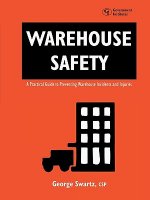
Warehouse Safety
4809 Kč -

Safety Culture
2655 Kč -

Pride
303 Kč -

Guidelines for Risk Based Process Safety
5952 Kč -

Ultimate Desert Handbook
732 Kč -

OHSAS 18001 Step by Step
454 Kč -

Violence of Financial Capitalism
312 Kč -

Occupational Safety and Health for Technologists, Engineers, and Managers, Global Edition
2539 Kč -
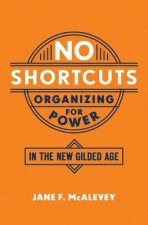
No Shortcuts
593 Kč -

Working in Biosafety Level 3 and 4 Laboratories - A Practical Introduction
2953 Kč -

Security Management for Occupational Safety
3343 Kč -

Human Contribution
1733 Kč -
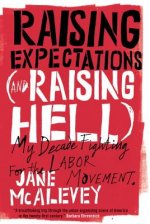
Raising Expectations (and Raising Hell)
515 Kč -

Guidelines for Safe Process Operations and Maintenance
4198 Kč -

Wobblies of the World
925 Kč -

Settled Asbestos Dust Sampling and Analysis
8242 Kč -

Lean Safety Gemba Walks
1524 Kč -

Definitive Guide to Behavioural Safety
1974 Kč -

Hamilton & Hardy's Industrial Toxicology 6e
6043 Kč -

Sick Building Syndrome
4267 Kč -

Laser Safety
7585 Kč -

Ergonomics and Musculoskeletal Disorders (MSDs) in the Workplace
3814 Kč -

Pew and the Picket Line
2990 Kč -

On the Ground
792 Kč -

Wobbly Life
700 Kč -

Workplace Health Promotion Programs - Planning, Implementation, and Evaluation
3002 Kč -

Jobless Future
960 Kč -

Safety Critical Systems Handbook
4940 Kč -

Decisions Over Decimals - Striking the Balance between Intuition and Information
800 Kč -

Chemistry of Pyrotechnics
3267 Kč -
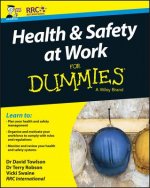
Health & Safety at Work For Dummies
613 Kč -
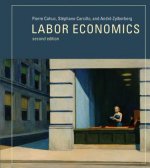
Labor Economics
3498 Kč -

Trench Rescue
3824 Kč -

Homestead Strike of 1892
635 Kč -

HAZOP: Guide to Best Practice
2204 Kč -

Normal Accidents
1147 Kč -

Natech Risk Assessment and Management
4614 Kč -

Food Safety Management
3313 Kč
Osobní odběr Praha, Brno a 12903 dalších
Copyright ©2008-24 nejlevnejsi-knihy.cz Všechna práva vyhrazenaSoukromíCookies


 Vrácení do měsíce
Vrácení do měsíce 571 999 099 (8-15.30h)
571 999 099 (8-15.30h)